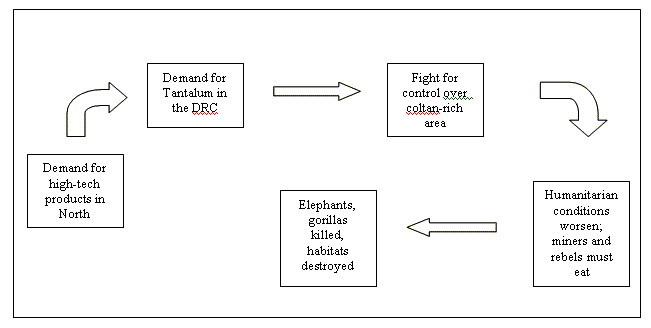User:Darija Medic/Final Project Proposal/notes
Past topics dealt with:
language, power relations, public space, instrumentalization of knowledge, institutionalization
During tutorials, the 4 topics extracted from my mind map((s)pams) are:
- Alternative realities
- (new) Magical belief in technology
- Sorting data
- Online behavior-softwear
In many cases the topics correlate and overlap, so I will mention the key points of each, and which ideas correspond to which topic more than the other. It is important to note that they are interconnected.
- Alternative realities
are a theme, given the understanding that there is no given, inherent, total reality. We get familiarized with this realization only when facts are not synchronized, when a clash occurs, a dramatic construction that enforces order or constitutes a new reality. Abstraction aside, if we were given different ways of browsing, we would also have different realities on the same subjects. How could these situations occur? I'm precisely interested in that trigger, and its effects, with the presumption that this is the underlying theme of all the topics.
Example: How would we question connectivity as such, how could we disconnect, and what does that mean?
- The intuitive promise
New magical thinking- the starting position is the hypothesis that belief in technology resides, among other things, on a magical level, despite the "development" of science, and on the other hand precisely because of the development of technology (intuitive features). The promise of technology is unpolitisized, it's pure enjoyment and magic. Note: the distinction between magic and religion is an important one for defining the starting point of the project.
-A straightforward example of a practical manifestation would be constructing a magical gps voodoo device. I would like to play with the manners of interpreting technology, from branding of intuitive interfaces to fetishism to technical determinism to user mythologies to theories of conspiracy(with a question mark) to hackers as magicians.
- Softwear
The starting position is that of software being a soft way of wearing a community (sorting data, online behavior, alternative realities). It is often noted that the technology shapes us, but also the way that tools are used over time influence the way they are shaped in our approach to them, and also in their actual physicality. Therefore, finding a filter-meaning aggregator could show us some underlining codes of behavior (both of humans and of software). How do users influence software?
Example of youtube: how could one observe a constantly changing collection? Possibly through:
- semantics of videos -dramatic construction
- semantics of the actual language
- semantics of the connections within the database
- Data sustainability
Hierarchies of information
Being in the position of archiving knowledge is a powerful and privileged one. How do tags, keywords, databases, taxonomies work? What are the trends of knowledge? And what is considered as valuable information? In the cultural field of overproduction, sorting data becomes an exciting and important task in order to vocalize content and an influential tool. I would like to research approaches to and theories of data, where in the hierarchy is language and how big of a part does it play.
Examples, questions:
Who is in who's role when we interact (for example hierarchy of nodes up to a server) online. How is it possible to play with authority and its transfer, with questions of (online) integrity.
November 16th
how technology is influencing culture
how culture is influencing technology
Despite the view that magic is less than rational and entails an inferior concept of causality, in The Savage Mind (1966), Claude Lévi-Strauss suggested that magical procedures are relatively effective in exerting control over the environment. This outlook has generated alternative theories of magical thinking, such as the symbolic and psychological approaches, and softened the contrast between "educated" and "primitive" thinking: "Magical thinking is no less characteristic of our own mundane intellectual activity than it is of Zande curing practices."
http://en.wikipedia.org/wiki/Clarke%27s_three_laws
aspects of animism:
http://en.wikipedia.org/wiki/Cloud_computing
As the international technology sector has significantly increased in the last few years, so has the demand for high tech inputs, such as coltan. Companies like Sony, Nokia, Ericcson, and Intel in the late 1990s increased their demand for the mining of coltan in the DRC, which in turn created the demand for miners. Rwanda and Uganda, already having ethnic and financial ties in coltan-rich areas, took control of the mining areas, committing massive human rights abuses in the process. The people remaining in the area and the miners suffer horrid living conditions and poverty. Needing to eat, they pillage nature reserve parks, damaging the ecosystem and killing off elephants, gorillas, and okapis to almost extinction.
http://www1.american.edu/ted/ice/congo-coltan.htm
aspects, problems:
- (de)mystifying hardware/data
- navigating as remote control -instructing, navigating as filtering
- miasma-ether-the cloud-information physical in spaces-interfering signals
- technological dependencies-fetishes
- experiments -alchemy -play
- meaning of medium http://dictionary.reference.com/browse/medium
Word Origin & History
medium 1584, "a middle ground, quality, or degree," from L. medium, from neut. of adj. medius (see medial). Meaning "intermediate agency, channel of communication" is from 1605. That of "person who conveys spiritual messages" first recorded 1853, from notion of "substance through which something is conveyed." Artistic sense (oil, watercolors, etc.) is from 1854. The adj. is 1670, from the noun; as a designation of cooked meat, it is attested from 1939. Happy medium is the "golden mean," Horace's aurea mediocritas.
- encrypting code-code as recipe-programmers as magicians, Das Netz, obscure coding, psychogeophysics
- peudo-science
- meaning of cyborg through time, naturalization of codes and protocols
The difference between language and code, the difference between the shown and the hidden is the space where magic happens
Dealing with technology in a critical way (demystifying) http://www.electroboutique.com/elec/15

